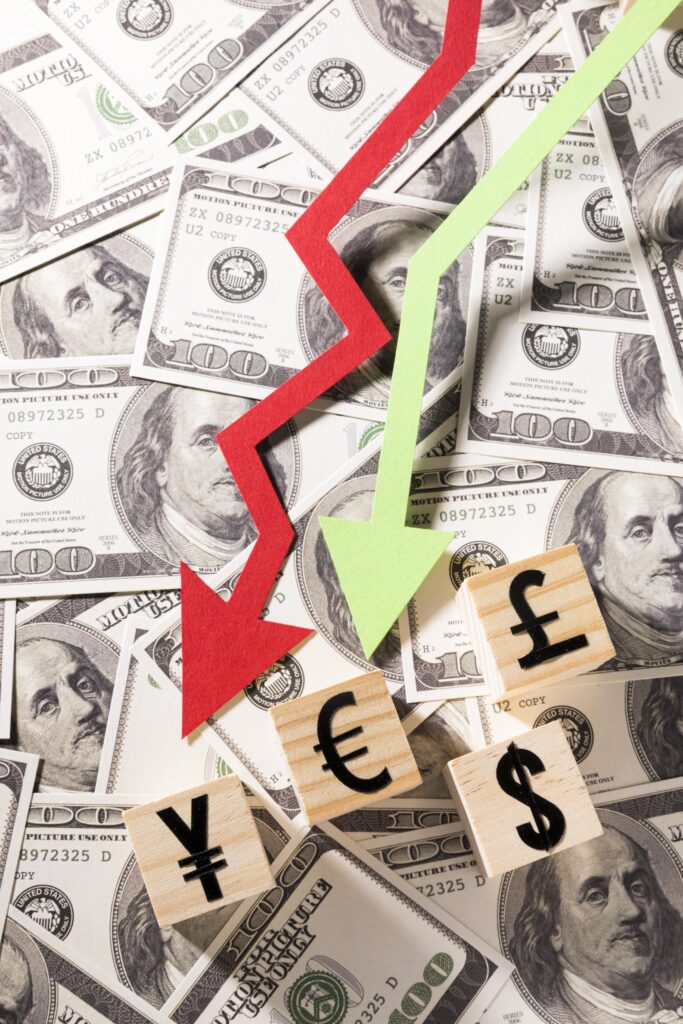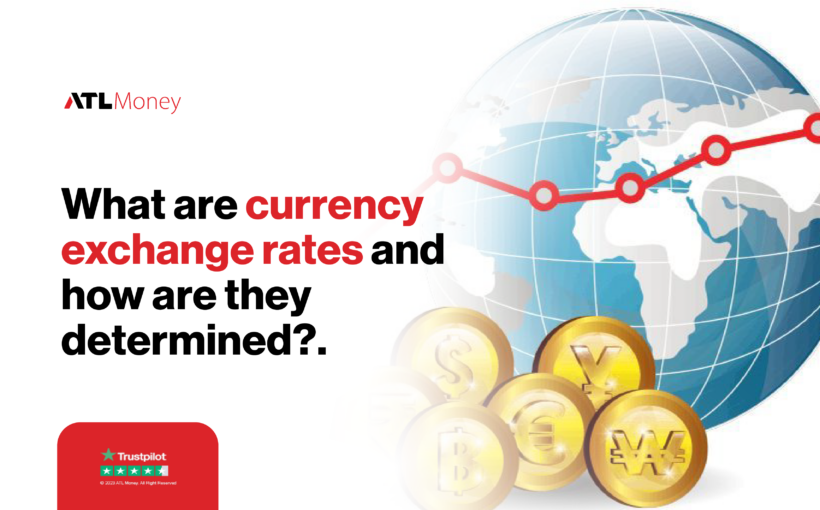Currency exchange rates play a crucial role in the global economy, affecting everything from international trade to personal travel.
Understanding how these rates are determined is essential for anyone involved in foreign transactions, whether sending money abroad, investing in international markets, or planning a trip overseas.
Let’s delve into what currency exchange rates are and the various factors that influence them.
What Are Currency Exchange Rates?
A currency exchange rate is the value of one country’s currency in terms of another. For example, if the exchange rate between the US dollar (USD) and the euro (EUR) is 1.2, it means 1 USD can be exchanged for 1.2 EUR. Exchange rates can be quoted in two ways:
– Direct Quotation: The value of the foreign currency is expressed in terms of the domestic currency (e.g., 1 USD = 1.2 EUR).
– Indirect Quotation: The value of the domestic currency is expressed in terms of the foreign currency (e.g., 1 EUR = 0.83 USD).
Understanding the reasons behind the constant fluctuations in exchange rates can help you make wise choices the next time you need to send money overseas or transact business.
Ways Exchange Rates are Determined?
Exchange rates are determined by the foreign exchange market, also known as the Forex market. This decentralized market operates 24 hours a day and involves a vast network of banks, financial institutions, corporations, and individual traders. Several key factors influence exchange rates:

Supply and Demand
The most fundamental factor influencing exchange rates is the supply and demand for currencies. If demand for a currency increases, its value will rise relative to other currencies. Conversely, if demand decreases, its value will fall.
Supply and demand can be influenced by various factors, including economic conditions, geopolitical events, and market sentiment.
Interest Rates
Interest rates set by central banks play a significant role in determining exchange rates. Higher interest rates offer better returns on investments denominated in that currency, attracting foreign capital and increasing demand for the currency. Conversely, lower interest rates can lead to a decrease in demand.
To give an example, if the European Central Bank raises interest rates, the euro may appreciate as investors seek higher returns.
Inflation Rates
Inflation rates also impact exchange rates. A country with a lower inflation rate than others will see an appreciation in its currency value. This is because lower inflation typically indicates a stronger economy and more stable purchasing power. Conversely, higher inflation can lead to a depreciation in currency value as purchasing power erodes.
Economic Indicators
Various economic indicators, such as Gross Domestic Product (GDP) growth, employment rates, and trade balances, influence exchange rates. Strong economic performance generally boosts a currency’s value, while economic downturns can weaken it.
For instance, if the US reports robust GDP growth, the USD might strengthen against other currencies.
Political Stability
Political stability and economic performance are closely linked. Countries with stable governments and predictable policies are more attractive to foreign investors, increasing demand for their currency.
Political instability, on the other hand, can lead to a loss of confidence and a decrease in currency value.
Market Speculation
Speculation by traders can cause short-term fluctuations in exchange rates. Traders base their judgments on their forecasts of future currency fluctuations, which can be impacted by news, economic data, and geopolitical events.
Large volumes of speculative trading can lead to significant swings in currency values.
Government Intervention
Sometimes, governments and central banks intervene in the Forex market to stabilize or influence their currency’s value. They can do this by buying or selling their currency or through policy measures.
For example, a central bank might sell its currency to lower its value and make its exports more competitive.
Practical Implications
Understanding exchange rates and their determinants is crucial for individuals and businesses involved in international transactions. When you send money abroad, the exchange rate will determine how much the recipient receives. For businesses, exchange rate fluctuations can impact profitability, especially if they operate in multiple countries or deal with foreign suppliers and customers.
For example, if you’re planning to send money to Spain, you should monitor the exchange rate between your home currency and the euro. A favorable exchange rate will ensure that your recipient gets more euros for the same amount of money sent.
_Conclusion
Currency exchange rates are determined by a complex interplay of factors, including supply and demand, interest rates, inflation, economic indicators, political stability, market speculation, and government intervention.
Understanding these aspects allows you to make better-educated decisions while engaging in international financial activities, such as moving money abroad, investing in foreign markets, or arranging a trip abroad.
Easily send money abroad with ATLMoney, and get the best exchange rates for your transactions.
